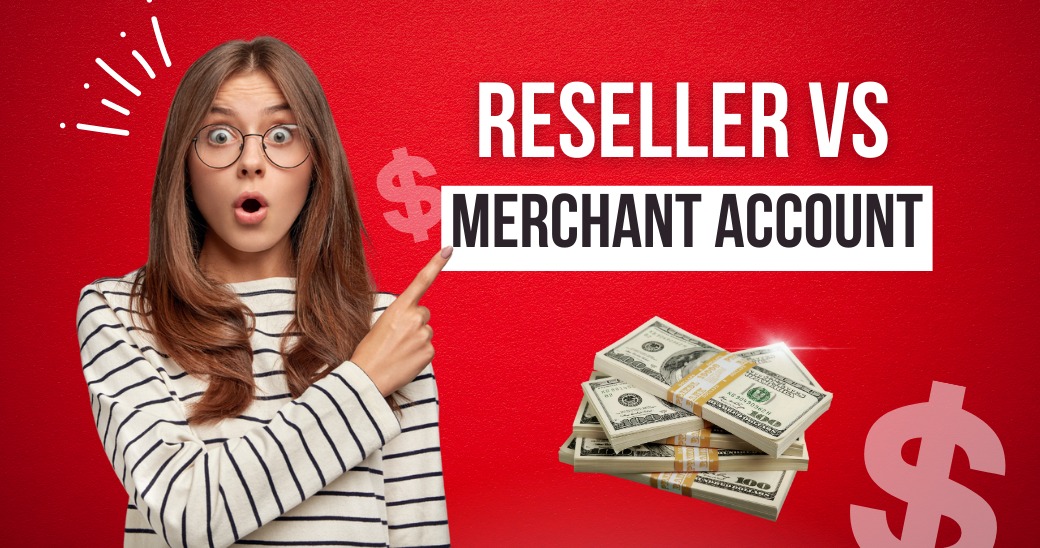When it comes to selling online, there are two main types of payment processors: merchant accounts and reseller accounts. Merchant accounts are great for direct sales and ecommerce customers, but they’re not ideal for anyone who sells on Amazon. On the other hand, reseller accounts can be used to sell on Amazon as well as an individual website or store — so what’s the difference? Let’s break it down.
Reseller vs merchant account – What’s the difference?
A reseller account allows you to sell products and services on behalf of other companies. For example, if you have an e-commerce store that sells music CDs, you can become an authorized seller of these CDs by signing up with the record label or artist who owns them. This means that when someone buys one of their albums from your site, they will be charged directly by the record label through their reseller account instead of being billed through PayPal or Stripe (or whatever payment processor).
What is a merchant account?
A merchant account allows businesses with large credit card transactions (like retailers) to process payments securely online without having to worry about getting hacked into by hackers like those who stole all those credit card numbers from Target shoppers back in 2013!
How much does a reseller account cost?
While a merchant account can be great for your business, it’s important to know that reseller accounts will cost you less.
A reseller account is ideal for businesses that sell physical products on Amazon, Etsy, or eBay (and other online marketplaces). It allows you to use the platform without having to get an individual merchant account yourself–you pay fees and keep some of the profit from each sale instead of paying fees and giving up all of the profit from each sale.
How much does a business pay for a credit card machine?
If you’re looking to get a credit card machine, there are some costs that you need to keep in mind.
- The cost of the machine itself: The price of a POS system varies depending on what kind of hardware and software you want (or need). There are many different types of credit card machines available on the market today. Some have built-in printers, others don’t; some will allow you to connect with POS software wirelessly or with cables; others require that you plug them directly into your computer via USB cable or Ethernet cable. Prices vary based on these factors as well as other considerations such as brand name recognition or whether it’s a used model instead of new technology from one specific company.
- Monthly recurring fees: If using SquareUp for example then there will be no additional monthly charges – just an annual fee which starts at around $275/year depending on how many employees work within their business’ payroll system (you must pay this each year). However, if choosing another service provider then expect anywhere between $30-$50 per month plus possible extra charges depending upon which features/additional services are required by each merchant’s needs.”
Should you get an online or in-store card reader?
If you’re a reseller, the answer is yes. If you’re a merchant, the answer is probably no.
If you’re looking for an online-only card reader that will work with all types of credit cards and mobile devices, then an online card reader is right for you. It’s easier to set up and more secure because it doesn’t require any hardware–the software runs directly from your computer or phone. You can also use these services with multiple devices at once (for example one person could be swiping cards while another person checks out). This makes them much more flexible than traditional solutions like Square or PayPal Here (which only allow one person per device). In addition, since there are no additional costs associated with processing transactions through their software platform (unlike when using Square), this makes these services cheaper overall than traditional options like PayPal Here or Intuit GoPayment!
Merchant accounts are great for direct sales and ecommerce customers but not for anyone who sells on Amazon
Merchant accounts are great for direct sales and ecommerce customers but not for anyone who sells on Amazon.
Amazon requires a special Amazon account that allows you to sell products in their marketplace. They don’t allow merchants to use their merchant accounts, so if you want to sell on Amazon, you must have an Amazon business account (a special type of seller’s account) with them instead of your payment processor.
Conclusion
We hope this article helped you decide whether or not a reseller account is right for your business. If you have any questions, please don’t hesitate to contact YMSR! We’re happy to help.

